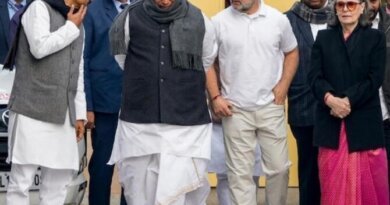Water Tensions Rise Again Over Banakacherla Project

A fresh wave of tension has emerged between Andhra Pradesh and Telangana over the Banakacherla water project. The issue, rooted in inter-state river sharing, has reignited debates on legal compliance, environmental impact, and equitable water distribution.
The Banakacherla project is a proposed irrigation scheme by Andhra Pradesh aimed at diverting surplus water from the Godavari River through the Krishna basin to the drought-prone Rayalaseema region. The plan includes expanding canal capacities and constructing a reservoir at Bollapalli.
Expansion of Polavaram Right Main Canal to 38,000 cusecs
Upgrade of Thatipudi Lift Canal to 10,000 cusecs
Construction of Bollapalli reservoir with 173 TMC capacity
Tunnel through Nallamala forest to connect to Banakacherla Regulator
Telangana has raised concerns over the legality of the project. Officials argue that the Andhra Pradesh Reorganisation Act, 2014 mandates prior approvals for inter-basin transfers. Telangana also fears the diversion could impact its own irrigation schemes dependent on Godavari waters.
No clearance from Krishna River Management Board (KRMB)
No approval from Godavari River Management Board (GRMB)
Central Water Commission (CWC) yet to review the Detailed Project Report
Alleged violation of Godavari Water Disputes Tribunal allocations
The proposed 19.5 km tunnel under the Nallamala hills has triggered alarm among environmentalists. Concerns include damage to biodiversity hotspots and displacement of tribal communities.
Andhra Pradesh Chief Minister Chandrababu Naidu has defended the project, citing surplus water wastage and long-term benefits for both states. Telangana’s initial resistance has softened, with official channels remaining silent in recent weeks.
Telangana previously proposed the Inchampalli-Godavari link as a cost-effective and eco-friendly alternative. However, no formal progress has been made on this front.
A high-level committee formed by the Ministry of Jal Shakti is yet to deliver its findings. The Centre’s role in mediating the dispute remains crucial
Local communities in Rayalaseema support the project for its potential to alleviate drought. Meanwhile, Telangana farmers and activists demand transparency and fair water sharing.
Experts suggest a joint technical review, stakeholder consultations, and environmental audits. A balanced approach could ensure water security without compromising legal and ecological standards.
The Banakacherla dispute underscores the complexity of river-sharing in India. As both states navigate legal frameworks and public expectations, collaborative solutions are essential to avoid prolonged conflict.




Good article, but some lines are hard to understand.